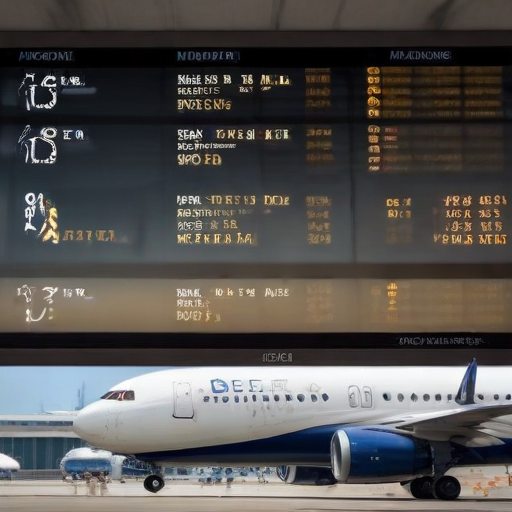Delta Air Lines faced significant challenges on Monday as it continued to recover from a global software outage that led to substantial flight cancellations and delays over the weekend. On Sunday alone, Delta canceled approximately 1,300 flights and delayed another 1,600, with estimates showing that over 3,500 flights had been impacted from Friday to Saturday.
By Monday morning, Delta had canceled 626 flights and delayed 144, representing roughly 20% of its planned schedule. In contrast, American Airlines managed to cancel only 38 flights and delay 155, which is about 5% of its operations.
The complications arose from a faulty software update implemented by cybersecurity firm CrowdStrike late Thursday. This update adversely affected Microsoft Windows operating systems, leaving numerous corporate users—including Delta—struggling with access issues, including those commonly known as the “Blue Screen of Death.”
The fallout from this incident reached across various sectors, significantly impacting healthcare, delivery services, retail, and financial industries. The aviation sector was particularly hard-hit, with over 46,000 flight delays and more than 5,171 cancellations on Friday alone, according to data from FlightAware.
Delta’s CEO, Ed Bastian, expressed deep regret for the disruptions, stating that canceling flights is always a last resort. He emphasized Delta’s commitment to connecting travelers and recognized the frustration caused by flight cancellations. To accommodate affected customers, Delta is offering a travel waiver for free flight changes, along with meal vouchers and accommodations for those who need them.
In response to the situation, Secretary of Transportation Pete Buttigieg took to social media to note that his department received numerous complaints regarding Delta’s response to the crisis. He called on Delta to ensure that affected passengers receive appropriate refunds, free rebooking options, and prompt reimbursements for expenses incurred due to the disruptions. Buttigieg highlighted the importance of customer service during such events, stating that no one should be left stranded or waiting on hold for long periods.
In summary, while the recent software outage has undoubtedly caused significant difficulties for Delta Air Lines and its passengers, the airline is taking steps to rectify the situation and support those impacted. With proactive measures like travel waivers and assistance, there is hope that Delta will effectively manage the recovery process and restore traveler confidence in the near future. This incident serves as a reminder of the interconnectedness of technology in the airline industry and the importance of robust system updates to prevent such occurrences.
